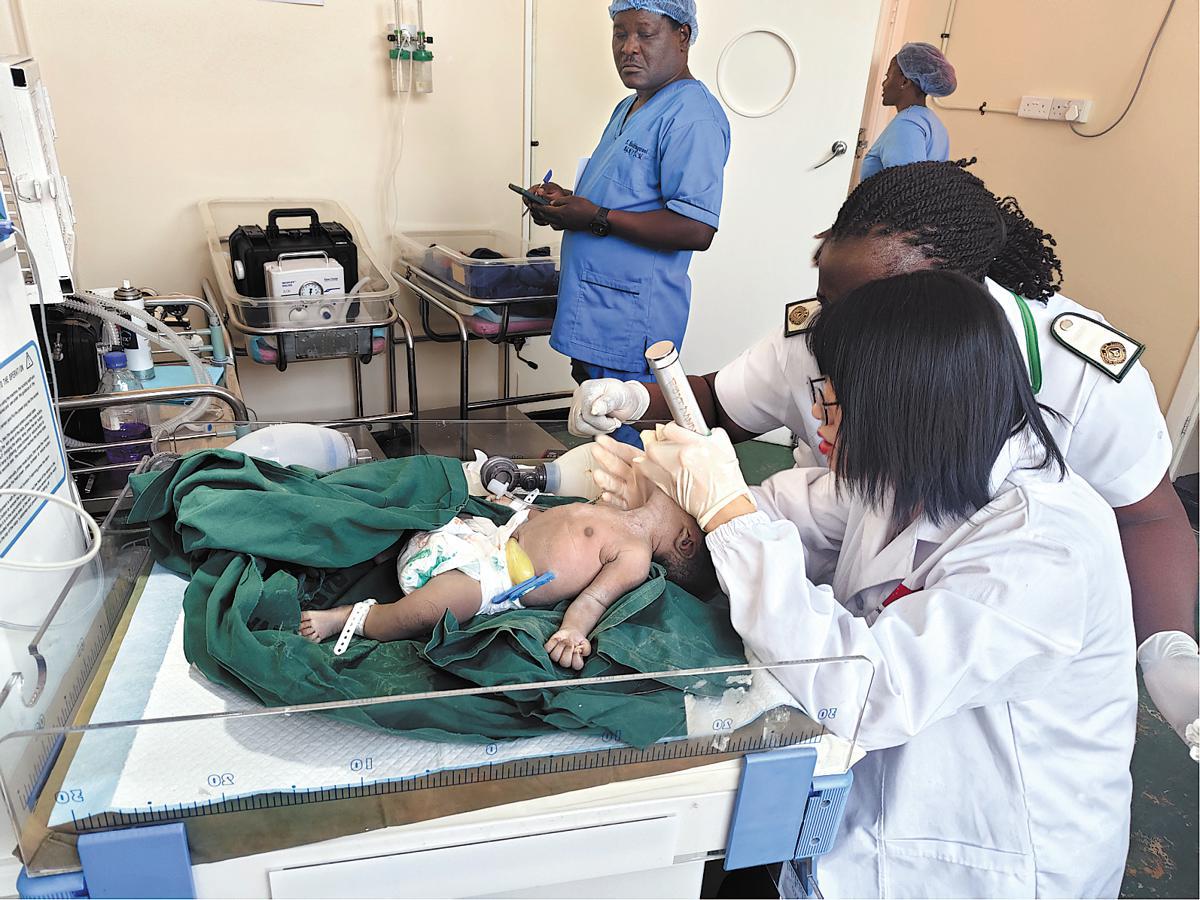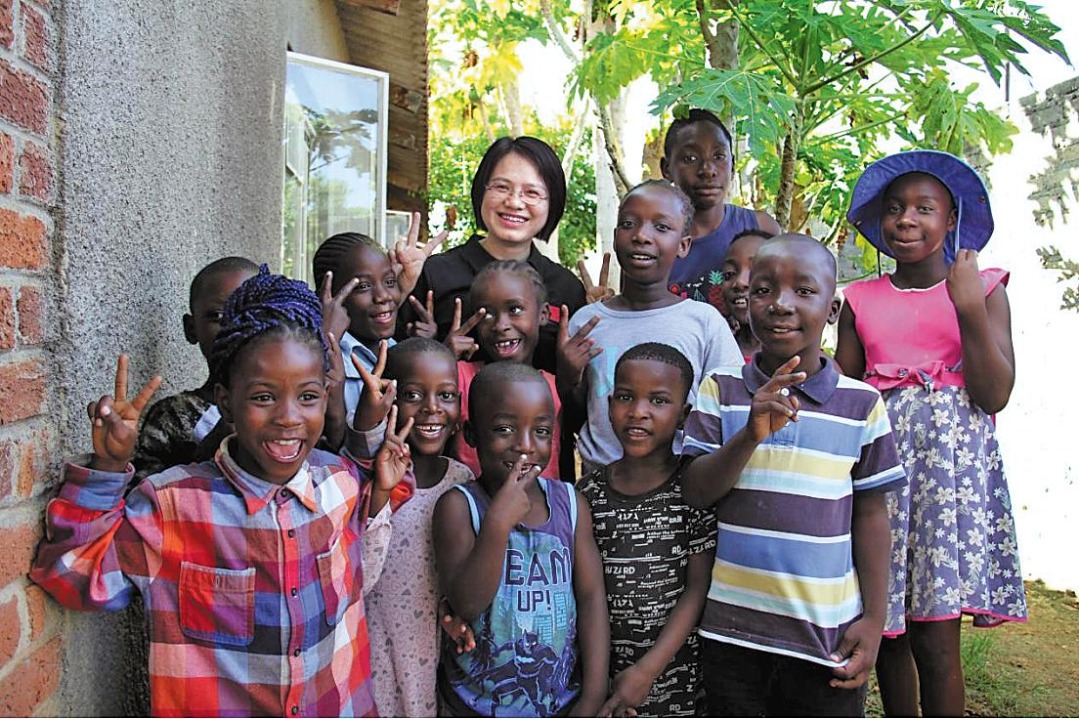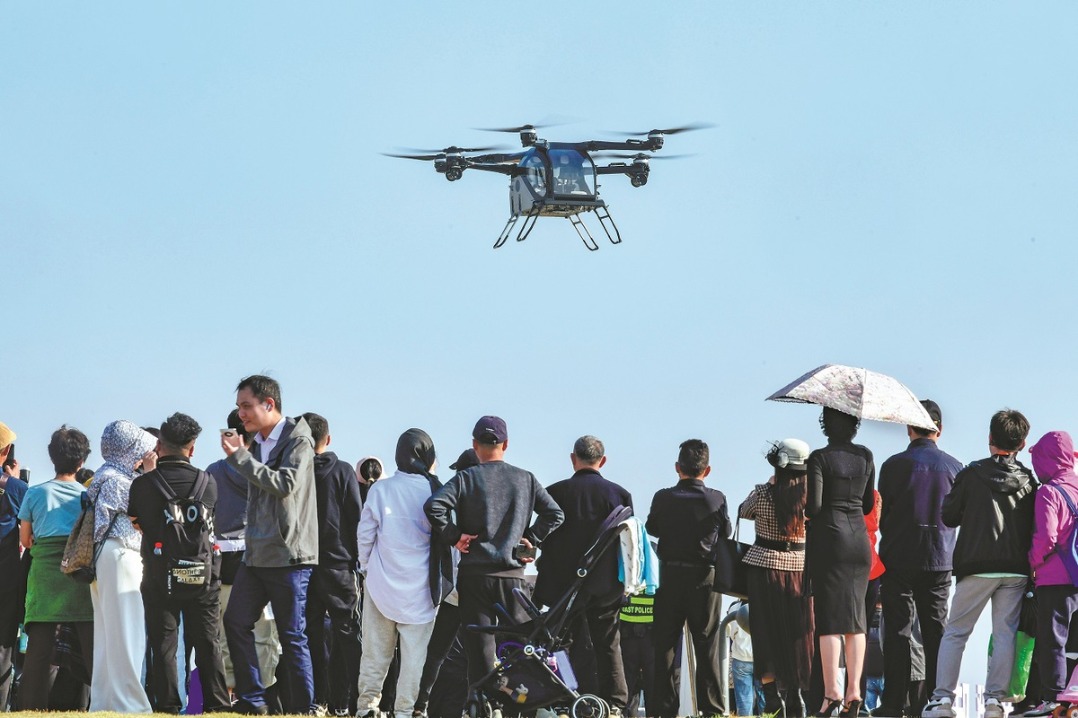African trip changes doctor's worldview
Scarce resources, extreme heat and language barriers posed challenges for medical team


In China, she said, people often take privileges like safety, transportation and healthcare access for granted. She recalled Zimbabwe's stark realities — communities fetching water for hours, families sleeping on straw mats and pediatric resources stretched thin. Yet the "pure hope" in children's eyes motivated her daily.
Over the year, Wen's team treated 1,200 pediatric outpatients, hospitalized 500 critically ill children and reduced neonatal mortality significantly.
A limited variety of food pushed Wen to embrace self-reliance. "I missed fresh vegetables terribly," she said. Determined to improve her team's nutrition, she began experimenting with gardening in the hospital's dusty courtyard. Using seeds purchased locally, Wen carved out a small plot. She planted cucumbers, green beans, chile peppers, cabbage and watermelons, though the latter never bore fruit.
Water scarcity posed the greatest hurdle. Each morning, she saved the water from washing her face and brushing her teeth, carefully pouring it into a bucket to water her crops.
Through trial and error, her green beans and cucumbers thrived. The crisp vegetables became a rare luxury, shared joyfully with teammates during meals.
"In Africa, I learned that hope grows even in the harshest soil," she said. Her garden may have yielded only cucumbers and beans, but her true harvest — a legacy of healed children, empowered colleagues and strengthened Sino-African ties — will endure for generations, she added.
Zhu Youfang contributed to this story.
zoushuo@chinadaily.com.cn























